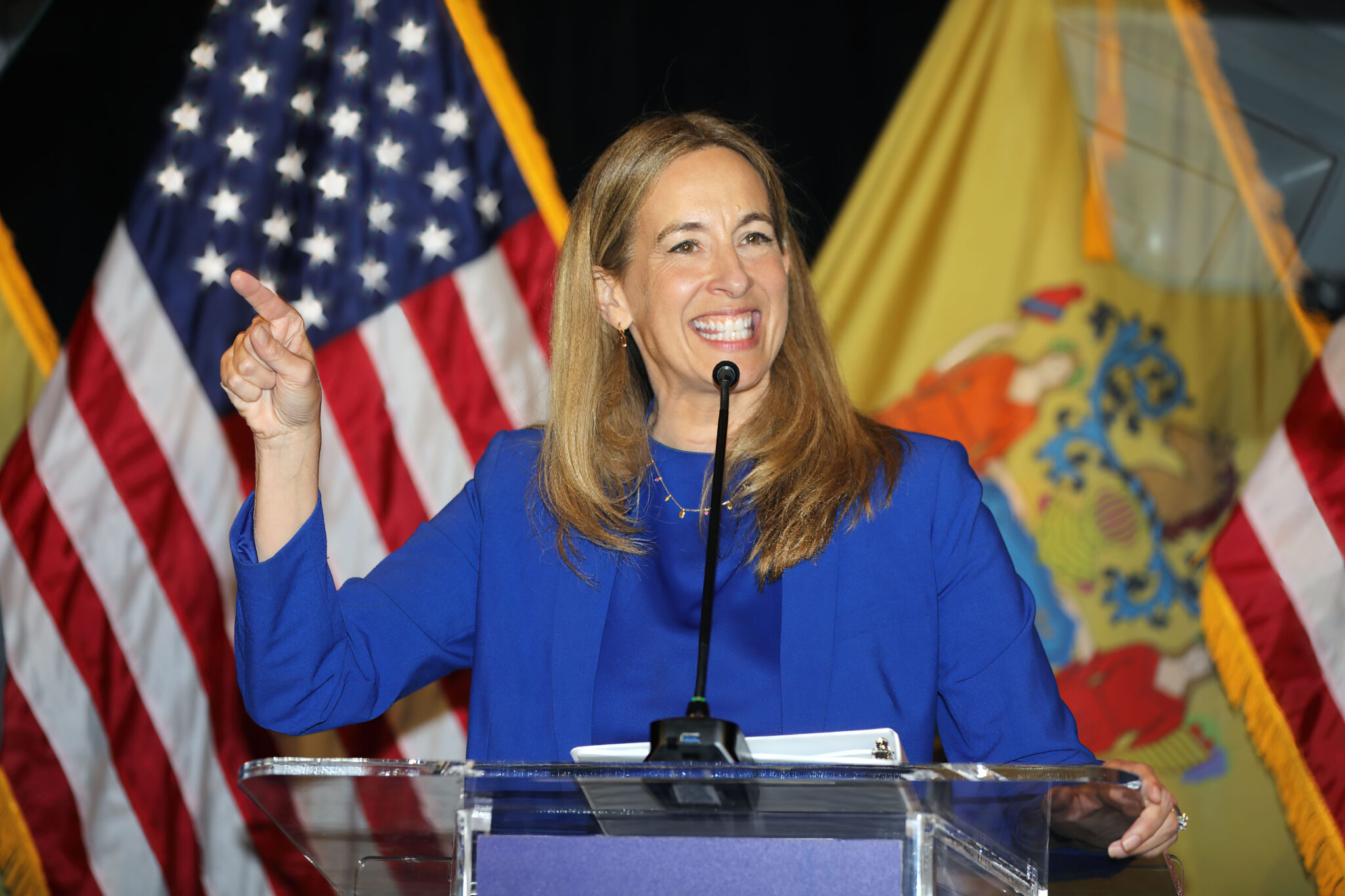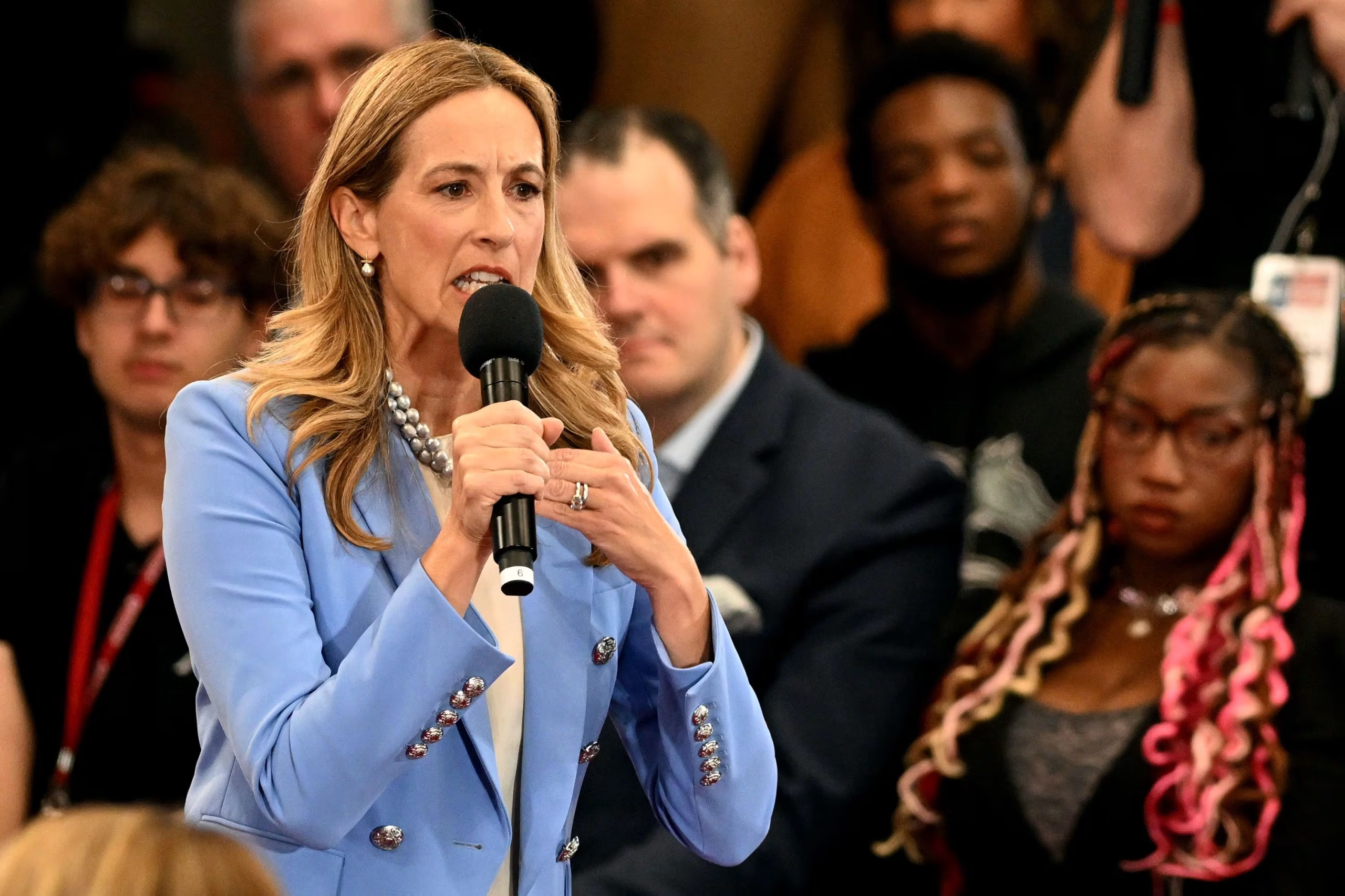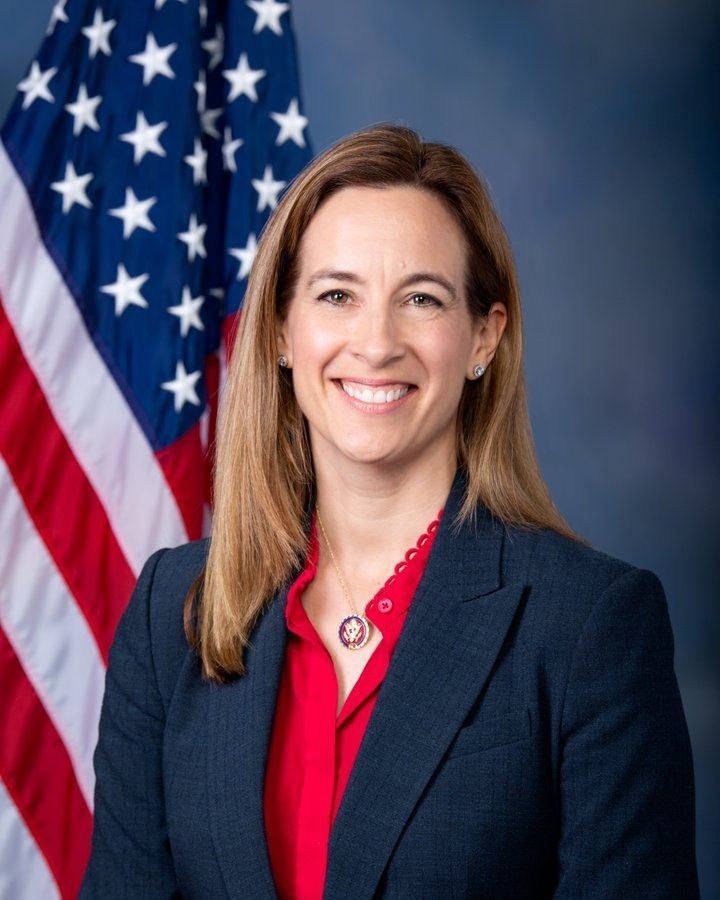A Pivotal Election in New Jersey’s History
The 2025 New Jersey Governor race was not just another election; it was a decisive moment that reverberated far beyond the Garden State’s borders. Mikie Sherrill, the Democratic candidate, squared off against an opponent who was endorsed by former President Donald Trump. In a year marked by political turbulence and a deepening divide in American politics, Sherrill’s victory was seen as both a personal triumph and a victory for progressive ideals. Her win symbolizes the shifting tides of political power and sets the stage for what New Jersey—and perhaps the nation—can expect in the years ahead.
Sherrill’s victory over a Trump-endorsed challenger was not just a local achievement; it was a symbolic win for a new generation of leadership, for women in politics, and for the resilience of progressive values in the face of rising conservative populism. In this article, we will delve into the key elements of Sherrill’s victory—her campaign strategy, the issues that shaped the race, and the implications of this historic moment for both New Jersey and national politics.

New Jersey’s political landscape in 2025 was marked by an ever-widening divide between conservative and progressive forces. As the state prepared to elect its next governor, Sherrill’s moderate yet progressive stance became a beacon for voters seeking stability in a time of national uncertainty. While her opponent’s platform, bolstered by the weight of Trump’s endorsement, leaned heavily on issues like tax cuts, deregulation, and a tough-on-crime approach, Sherrill’s focus on equity, healthcare, and sustainable growth won her the support of a diverse and expansive voter base.
Sherrill, a seasoned congresswoman and former Navy officer, proved that her experience could translate into real solutions for the state’s most pressing issues. She ran on a platform of inclusivity, economic opportunity for all, and protecting the state’s environment, all of which resonated deeply with voters concerned about the future of their communities and families. Her victory was not just a political win—it was a reaffirmation of the values that have always made New Jersey a state of progress and opportunity.

Campaign Strategy and Key Issues: Focusing on the Heart of New Jersey
Mikie Sherrill’s campaign was one that spoke directly to the heart of New Jersey. From the urban streets of Newark to the suburban neighborhoods of Princeton, Sherrill focused her attention on the issues that mattered most to the people of New Jersey. Education, healthcare, and affordable housing were at the forefront of her platform, and she crafted a message that appealed to the middle class, young voters, and communities traditionally underrepresented in state politics.
One of the most striking aspects of Sherrill’s campaign was her ability to harness the power of grassroots organizing. Her team reached out to voters not just in big cities but in the more rural and suburban areas of the state. Town hall meetings, local events, and direct interactions through social media helped her build a rapport with voters who may have otherwise felt disconnected from the political process. Sherrill’s team understood that, in a race this close, every vote mattered. And it was this attention to detail, combined with a consistent and genuine message, that propelled her to victory.
Her focus on healthcare, especially expanding access to mental health services and addressing the rising cost of prescription drugs, was especially resonant in a state with a diverse population. Similarly, her position on climate change and environmental protection helped her appeal to the younger demographic, who have increasingly prioritized these issues in recent elections. For many voters, Sherrill represented the hope of a future where New Jersey could lead the nation in progressive policy—without compromising on the values that make the state strong.
The Trump-Endorsed Opponent: Conservative Values in the Spotlight
In contrast to Sherrill’s progressive platform, her opponent, heavily endorsed by Donald Trump, ran a campaign steeped in conservative principles. The candidate’s focus on reducing taxes, implementing strict immigration policies, and boosting law-and-order measures made him an appealing choice for voters disillusioned with what they saw as the overreach of government.
Trump’s endorsement undoubtedly gave the candidate national visibility and funding, but it also brought with it a level of divisiveness that was hard to ignore. The Trump-endorsed candidate’s fiery rhetoric and promises of a return to “traditional American values” played well in some parts of the state, especially in rural areas, where his promises of cutting taxes and reducing regulation reson with conservative voters. However, as the election wore on, it became clear that Sherrill’s
Despite the intense backing from Trump, Sherrill’s ability to focus on local issues, like the rising cost of living, her support for public schools, and her plans to tackle climate change, ultimately won over the voters who felt alienated by the more nationalistic and partisan rhetoric of her opponent. Voters in New Jersey—whether Democrats, independents, or moderate Republicans—felt that Sherrill’s approach was the one that offered both hope and practical solutions for the state’s challenges.

Voter Engagement and Turnout: The Key to Sherrill’s Success
One of the most striking aspects of Sherrill’s victory was the high voter turnout, particularly among young people, women, and people of color. New Jersey saw a surge in participation, driven in part by Sherrill’s extensive outreach efforts. Social media played a critical role in galvanizing younger voters, who have become increasingly influential in shaping election outcomes. Sherrill’s use of digital platforms to discuss issues such as student debt, climate change, and racial justice resonated strongly with this demographic.
In addition to online engagement, Sherrill’s campaign made a concerted effort to connect with communities of color, many of whom have historically been underserved in New Jersey’s political landscape. Her efforts to address issues like affordable housing, police reform, and healthcare access helped mobilize voters who were seeking a change from the status quo. As a result, Sherrill’s support base expanded far beyond traditional Democratic strongholds, allowing her to win in key suburban and rural areas.
Election Results and Reactions: A Resounding Victory
When the election results were finally announced, Mikie Sherrill’s victory was met with celebration and relief from her supporters, and a great deal of reflection from her opponent’s camp. Sherrill won with a commanding margin, outperforming expectations even in traditionally red districts. Her victory was not just a win for her party—it was a win for the values of community, progress, and inclusivity that she had campaigned on throughout the election.
Reactions to the victory were swift and telling. Sherrill’s campaign team expressed gratitude for the support they had received from voters and volunteers across the state. The Trump-endorsed opponent, meanwhile, expressed frustration over the outcome, and many in his camp cited the impact of national politics on the race. However, despite the challenges, Sherrill’s win was viewed by many as a repudiation of the divisiveness that had characterized much of American politics in recent years.

Implications of the Victory: A New Era for New Jersey
Sherrill’s victory has deep implications for both New Jersey and national politics. It represents a triumph of progressive values in a state that has long been seen as a microcosm of America’s changing demographics. Her success signals that, even in the face of a resurgent conservative movement, voters are seeking leaders who prioritize unity, equity, and sustainable policies that benefit everyone.
For New Jersey, this victory promises to usher in a new era of political leadership. Sherrill’s policies will likely focus on economic development, expanding access to healthcare, and addressing climate change—issues that are particularly pertinent to a state that is grappling with the effects of rising sea levels and economic inequality. Her victory could also serve as a model for other states where progressive candidates are seeking to challenge conservative strongholds.

Sherrill’s Future and New Jersey’s Path Forward
Mikie Sherrill’s victory in the 2025 New Jersey Governor race is not just a personal triumph—it is a testament to the power of leadership rooted in compassion, community, and progressive values. As Governor, Sherrill will have the opportunity to shape the future of New Jersey in ways that reflect the values of hope, inclusivity, and progress. Her success marks the beginning of a new chapter in the state’s political history, one where the voice of the people can bring about meaningful change.
For the people of New Jersey and for the nation, Sherrill’s victory is a beacon of what’s possible when a leader listens to the people and works tirelessly to create a more equitable and just society. Her journey has only just begun, and the future holds tremendous promise for her leadership in shaping the course of New Jersey’s political and economic landscape.


